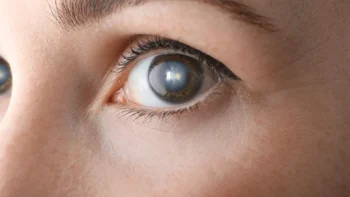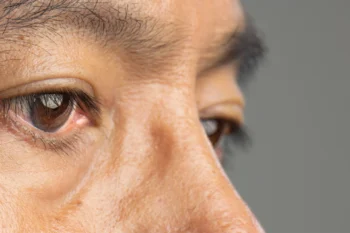Cataracts are a progressive condition that affects your eye lens. Many encounter cataracts as they age. Behind the colored part of your eye, known as the iris, is where the pathology is located. Cataracts are caused by the breakdown of proteins in the eye. The lens processes light and distinguishes images for the brain to develop. In your younger years, the lens is thin and flexible, then stiffens and thickens as you age. This is due to the proteins of the lens clumping together, causing clouded vision, or what is known as cataracts.
Cataracts usually occur when you are older. However, a genetic condition or injury can lead to cataracts as well. Symptoms include cloudy vision, light sensitivity, night vision difficulty, halos in vision, faded colors, failure of prescription glasses, double vision, or the need for more light to see or read. The best treatment for cataracts is surgery, but is cataract surgery permanent?
How does cataract surgery work?
Cataract surgery is an outpatient procedure most of the time. It takes about an hour to complete. Your surgeon will dilate your eyes with drops, and you will get a local anesthetic for the eye. If you are nervous, you may be given a sedative that will make you groggy but relaxed during the procedure.
During the procedure, the cloudy lens will be removed. A new, clear artificial lens will be implanted to replace it. In a few cases, the removal will not require the implantation of an artificial lens. There are various methods to remove the lens. Your surgeon may use an ultrasound probe. Once the surgeon cuts an incision in your cornea, phacoemulsification transmits ultrasonic waves and breaks up the cataract. They then suction out the fragments via a probe. The back of the lens capsule is left to provide the lens with a resting spot. Stitches can then close the corneal incision.
Your surgeon may also remove the cataract lens in one piece. This procedure, called extracapsular cataract extraction, requires a larger incision. With surgical tools, your surgeon removes the front capsule of the lens and the cataract. Once again, the back capsule remains to support the lens. This procedure may be ideal if you have certain eye conditions. Stitches are required.
Some of the obvious benefits of cataract surgery are:
- Speedy procedure
- Easy recovery
- Better vision
- Improved quality of life
- Eye health protection
Is cataract surgery permanent?
With cataract surgery, the cloudy lens of the eye is taken out, and a new artificial lens replaces it. A cataract cannot grow again when the natural lens has been removed, and a new artificial is placed into the eye. This lens that the surgeon puts in during the surgery will last a lifetime progressively within the week. Cataract surgery results have a 99% success rate, with 95% reporting better vision. You must follow your surgeon’s post-op directions to prevent infection. You usually receive eye drops, and you have to wear an eye covering. Cataract surgery does not clear farsightedness or nearsightedness, so those who wear glasses will still need them. Because the lens is removed during surgery, your eyesight should improve from day one. Objects will appear more crisp, clear, and bright. As your eye heals, the brain will adjust, and your vision will improve more.
Occasionally the capsule holding the lens can cloud up and may be falsely called an “ after-cataract.” If this happens, a simple laser procedure can correct it. Cataract surgery effectiveness can depend on several factors:
- Cataract size
- Eye health
- Overall medical healthiness
- Anesthesia used during the cataract surgery
Do you need cataract surgery?
There are some questions you can ask yourself if considering cataract surgery:
- Do I have problems with vision while watching tv or reading?
- Can I see safely enough to drive (day or night) and do my daily tasks?
- Do I have problems with vision that will not allow me to function independently?
- Is my vision impeded by bright lights?
- Does my decreased vision make it hard to shop, cook, climb stairs, take my meds, or do yard work?
Surgery is not always the first line way to go. You may not even notice changes in your vision at first. Initially, eyeglasses or contacts could help with your symptoms. Magnifying glasses, brighter lights for reading, or prescription specs could help lessen your symptoms. You should see a surgeon when cataract symptoms include difficulty driving at night, trouble reading, bumping into things in plain sight, problems seeing your food, clumsiness, inability to participate in your usual hobbies, or need for others to help you with ordinary functions due to cloudy vision.
Cataract surgery is not emergency surgery, fortunately. It can be planned around your calendar, like if you have an upcoming vacation. A delay of a week, month, or few months will not lead to a different outcome. You will only need to compensate by visiting your eye doctor more frequently to watch the progression of your cataracts. About a week before your surgery, your surgeon will perform an ultrasound to get the shape and size of your eye. The purpose of this is to calculate the proper type of lens implant.
Your doctor may tell you not to eat or drink 12 hours before your cataract surgery. They also may stop you from taking any medication that can lead to bleeding risks during surgery. Some prostate drugs can interfere with the surgery as well. After surgery, your eyes may be slightly itchy and light-sensitive. This will go away in about a day or two and is normal. Treatment is through eye drops, which also prevent infection. You should not rub your eyes after surgery or touch them. You also should not drive home.
So are you ready to take that first step toward clearer vision? If so, contact your eye surgeon today to get evaluated for cataract surgery.





